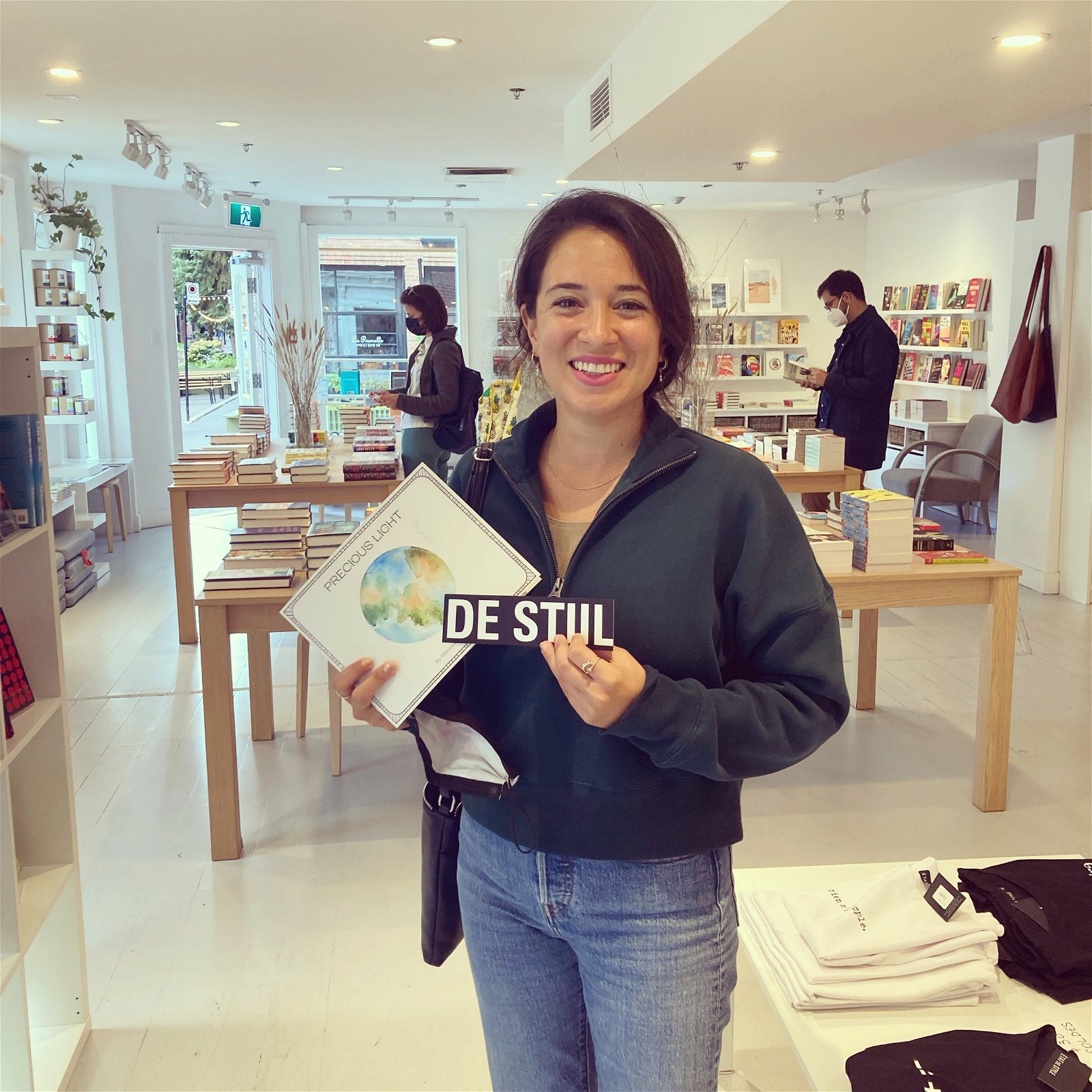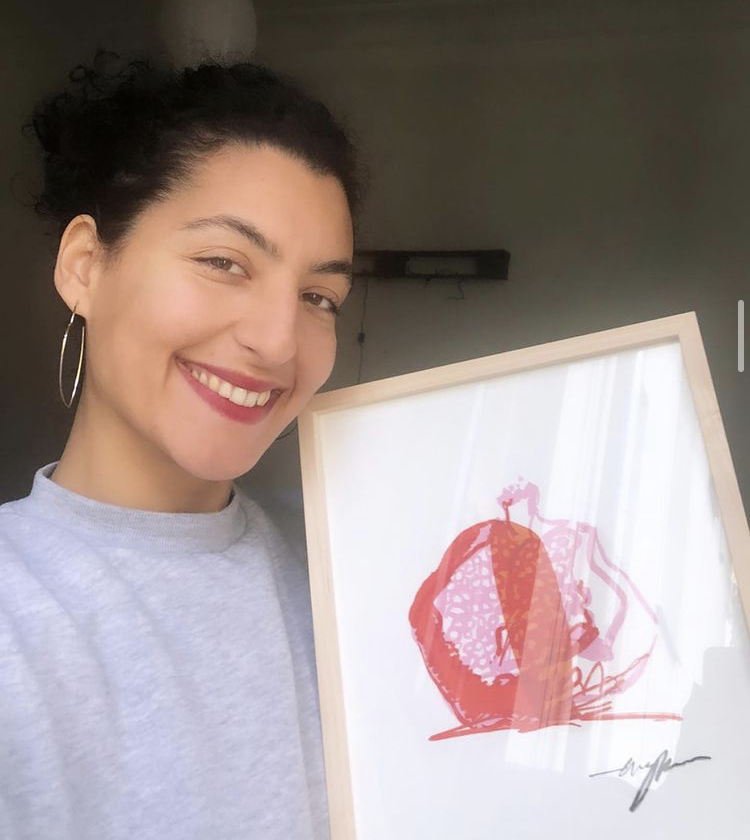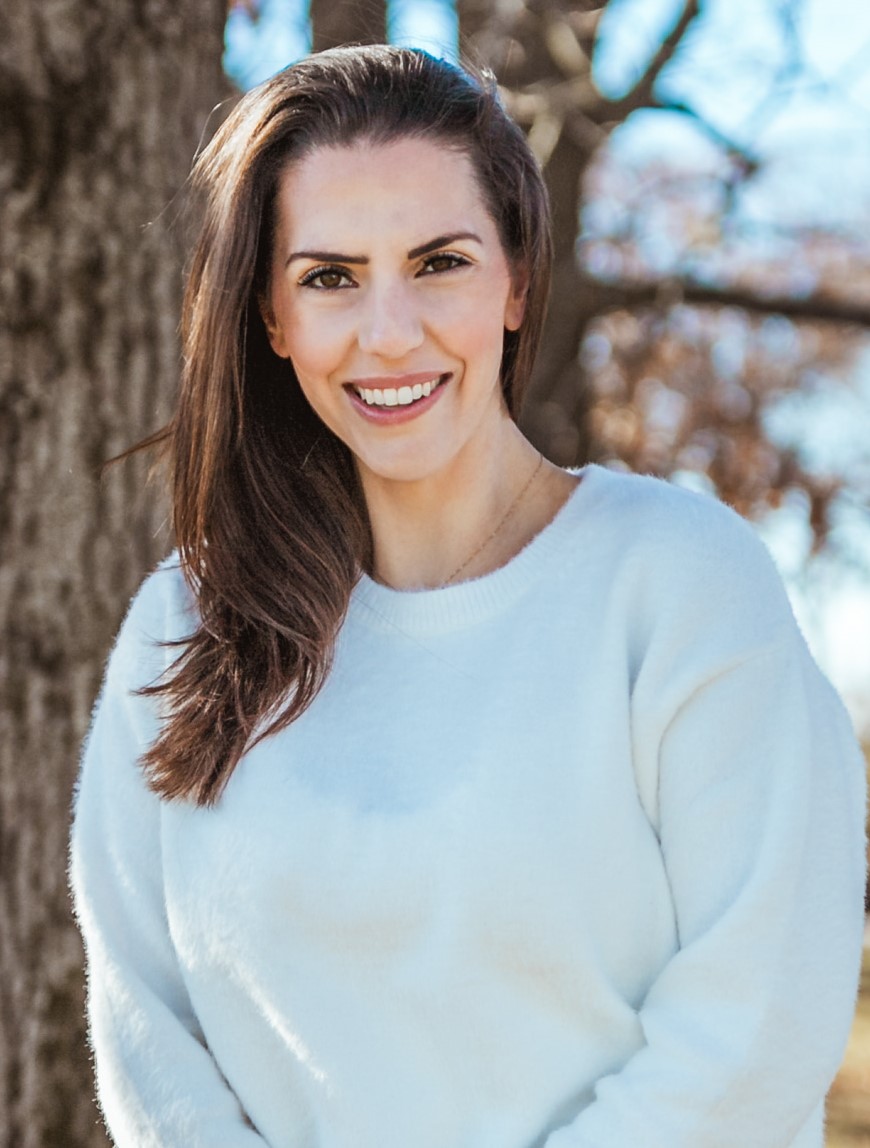Monica Paraghamian and Amy Kazandjian are sparking an important conversation about mindfulness with the forthcoming second edition of the children’s book Precious Light.
The first iteration was published in the winter of 2020 when Paraghamian—a Montreal-based artist, entrepreneur and educator—became an aunt and a godmother.
“Arto is a little being of light. un petit être de lumière,” begins the simple tale about Paraghamian’s darling muse. Arto’s story continues as he explores his dynamic internal light, how it waxes and wanes, and how his acknowledgment and understanding of that light leads to a sense of calm and an overall healthy sense of self.
“Arto is modeling self-awareness,” explained Paraghamian in a recent interview with the Weekly. “He’s modeling listening to himself.”

Paraghamian has dedicated her personal and professional life to the practice of mindfulness. A certified yoga instructor, she welcomes each new day in stillness with 30-minutes of meditation. Paraghamian is also a gospel singer, a songwriter and the co-founder of the Lotus Collective, which strives to increase equity in the music industry. As a former high school teacher who recognized signs of anxiety and depression among her students, Paraghamian says she is a firm believer in healing disconnection. “It’s important to reconnect with yourself and with your peers and your community in order to feel whole,” she says.
In 2020, in the middle of a global pandemic, Paraghamian decided to merge her expertise and respect for mental health with her robust background in the arts, education and project management to create Precious Light. Much of her book, which was written and designed in a matter of days, was inspired by a meaningful encounter that same year with an indigenous artist named Jacques Newashish, who blessed her with the knowledge that the term for children in his native language of Atikamekw means ‘little being of light.’
“What I retain the most and what is most important to me is the notion of the interconnectivity of life,” shared Paraghamian. “Everything relates. Every gift that we’re given during our existence is all of our responsibility. So we need to nurture our relationships with the environment, nurture the relationships with ourselves and nurture our relationships with other human beings and animals.”
Precious Light also highlights Paraghamian’s French roots. Her paternal grandfather was a tailor in Marseille after witnessing the murder of his entire family in Akşehir during the Armenian Genocide. He was rescued by a Kurdish man, was disguised as a young girl and secured safe passage on French rescue boats to Greece. The French also aided in the rescue of Paraghamian’s paternal grandmother and great-grandmother, natives of Izmir. “France, as a nation, is very important to me as a result of having been a country that, at that time, accepted refugees. I am here because of that,” expressed Paraghamian, a French citizen.
Paraghamian received tremendous feedback from readers after the 2020 publication of her prototype and has been hoping to revive the book with new illustrations ever since. “A lot of adults were telling me they were brought to tears,” she recalled. “I started to wonder, did I write a children’s book for adults?” Indeed, the book’s universal message on finding inner peace in times of uncertainty has resonated with readers of all ages, but this year, Paraghamian found a way to breathe new life into little Arto’s story.

She was delighted to discover Kazandjian—a fellow Canadian now living in Berlin, Germany—to help her fulfill her ultimate vision. This past year, Kazandjian, a former high school music and biology teacher, decided to focus her undivided attention on her modern, Armenian artwork and reclaim the lost art of letter writing, making a concerted effort to connect with her Armenian heritage. She says she is “exclusively inspired by the pomegranate, the jezveh and the holy mountain situation” and has created variations of these motifs to adorn whimsical postcards, greeting cards and watercolor prints, oftentimes donating proceeds to humanitarian causes in Artsakh and Armenia. This will be Kazandjian’s first time illustrating a children’s book. The digital creator, who also amuses her 5,700+ Instagram followers as “Tantig” (Armenian auntie) from time to time, is known for her viral, informative, 30-second Instagram reels during the 2020 war in Artsakh. “I was exploding under the pressure,” she recalled from those horrifying 44 days. “We needed something different. We can’t send a barrage of terrible information to friends and expect them to react. I need to do this…so that [non-Armenians] would be able to take in information in a digestible way.”
In the aftermath of the Artsakh War, there’s been a growing need for mental health resources like Precious Light for children who, in their most formative periods, had to suffer incalculable loss and witness catastrophic, dark and abrupt changes in their communities. As resilient as they might seem, the children of war torn Artsakh and Armenia need to be equipped with the proper tools to aid in the development of their social-emotional intelligence. But both Paraghamian and Kazandjian believe the language and the literature to address this trauma are absent in the recovery process.
“It is not an openly discussed topic,” says Kazandjian of the Armenian culture’s overall reluctance with trauma. “It’s not something you can neglect. It’s not something you can throw money at. The book does an amazing thing of bringing a mentor to the child because someone has to read it first and understand it and beautifully deliver it. That’s the conversation that needs to begin.”
“You don’t have to understand it fully. It’s just to pique their curiosity and introduce the notion of what is it that I need right now,” added Paraghamian. “If the child can connect with the feeling, the sensation that is being explained, that’s all. It doesn’t have to be complicated.”
Azerbaijan’s intent to destroy the indigenous Armenian population of Artsakh was also emotional to witness for millions of Diasporans around the world, gripped by unresolved, intergenerational trauma from the Armenian Genocide. Kazandjian says the guilt was paralyzing. “There was no top-down structure or conversation or path for what the heck we should do with our pain. We were frozen,” she expressed. “When I first read [Precious Light], I thought about my grandparents. I thought about my parents. They didn’t have the tools. We weren’t taught the tools. It’s a blessing that we found the tools in our generation.”
“I never got to know my grandfather, but I know that he suffered a lot, and he wasn’t able to talk about his trauma,” shared Paraghamian, who believes that certain international communities are beginning to tap into resources that can help with normalizing and overcoming difficult emotions. “We are starting to understand the impact…one generation upon the other of when things go untreated, what can happen,” she said.
The team is planning to partner with Armenian youth-serving organizations that will distribute copies of Precious Light to displaced children and families in remote border villages. The second edition will also be bilingual and was just translated this week into Eastern Armenian by Arianna Khachatrian, a college graduate living in Yerevan.
Paraghamian and Kazandjian, who have yet to meet in-person, say they have been working together seamlessly across time zones. They are currently in the brainstorming phase of Precious Light’s redesign. True to form, Kazandjian’s illustrations will be colorful, but minimalist and calming. “Armenian heritage and identity is infused throughout the book, even symbolically,” commented Paraghamian, who would love to see Kazandjian repurpose her signature watercolor pomegranate for the back cover of the book. Kazandjian says the Kintsugi pomegranate was inspired by the Diaspora. “Through our pain, we have our identity pieced together with our language and our culture and each other,” shared Kazandjian. “It’s just a watercolor pomegranate, but it really means that much to me.”
View this post on Instagram
Last week, the team began canvassing support through an online campaign set up to raise money for the illustrations, the translation and printing costs. So far, they have achieved 37-percent of their initial goal of $6,500.
“We’re not reinventing the wheel,” said Paraghamian in her final remarks, “Everything is just repackaged from generation to generation. We’ve just found a way to continue this wisdom and pass it on.”



Be the first to comment